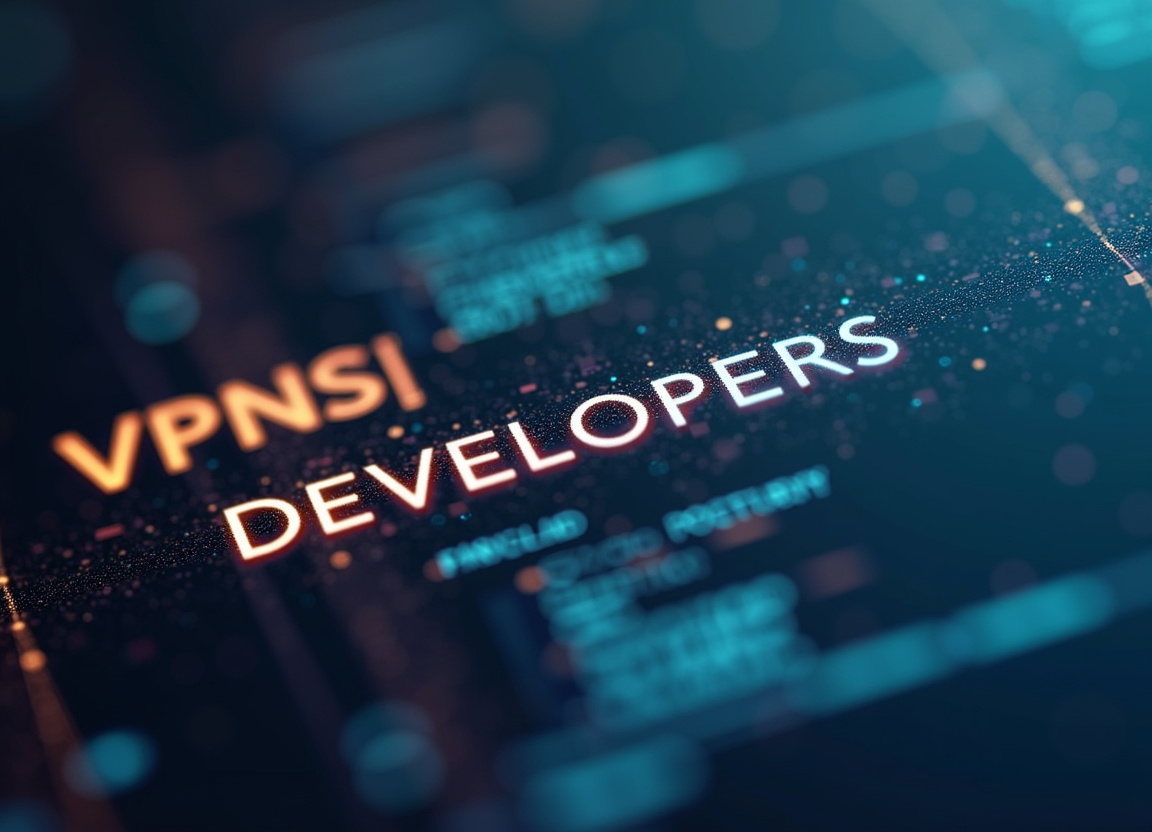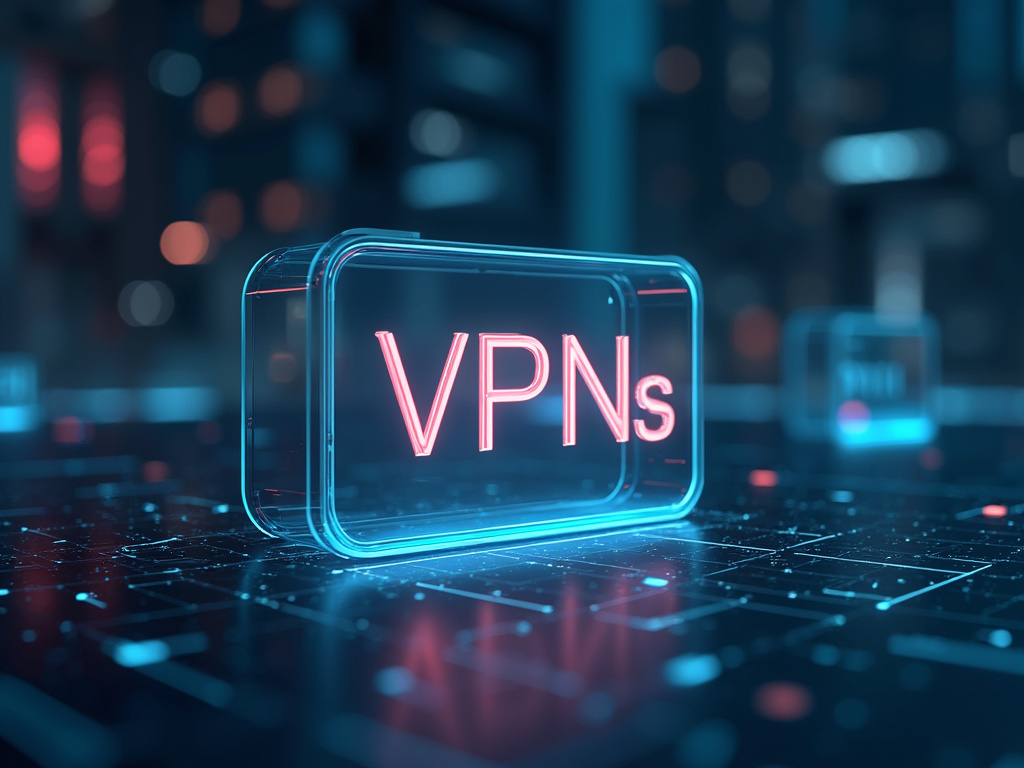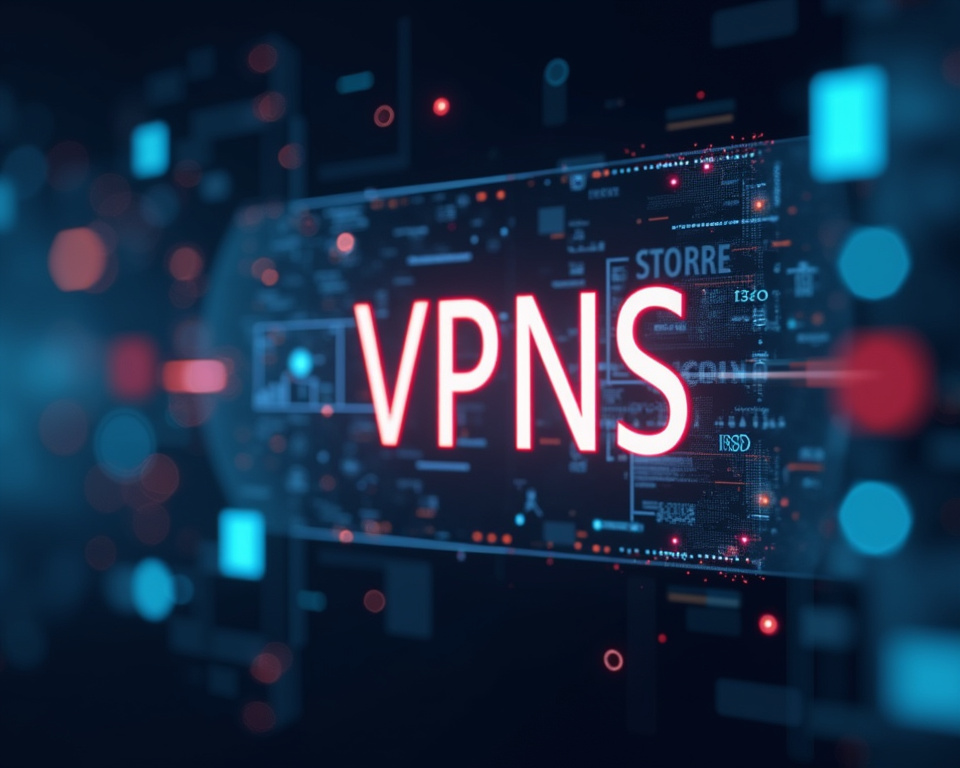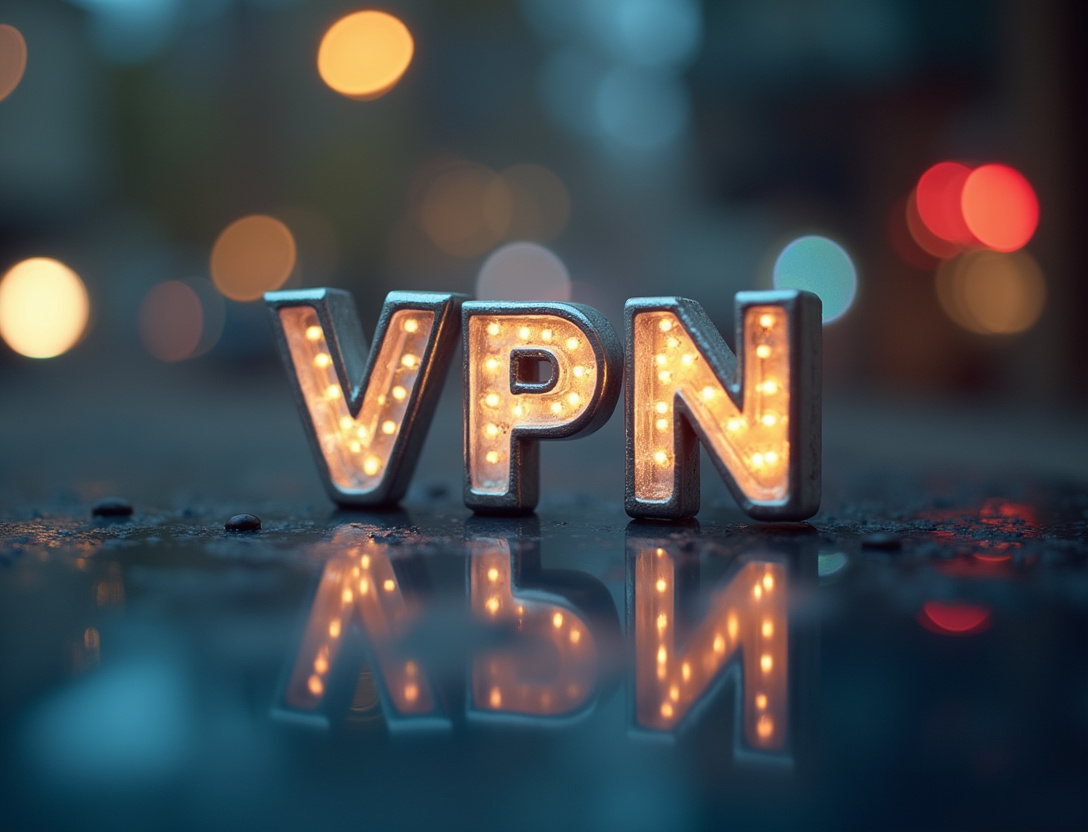VPNs for Software Firms: Protecting Development Environments
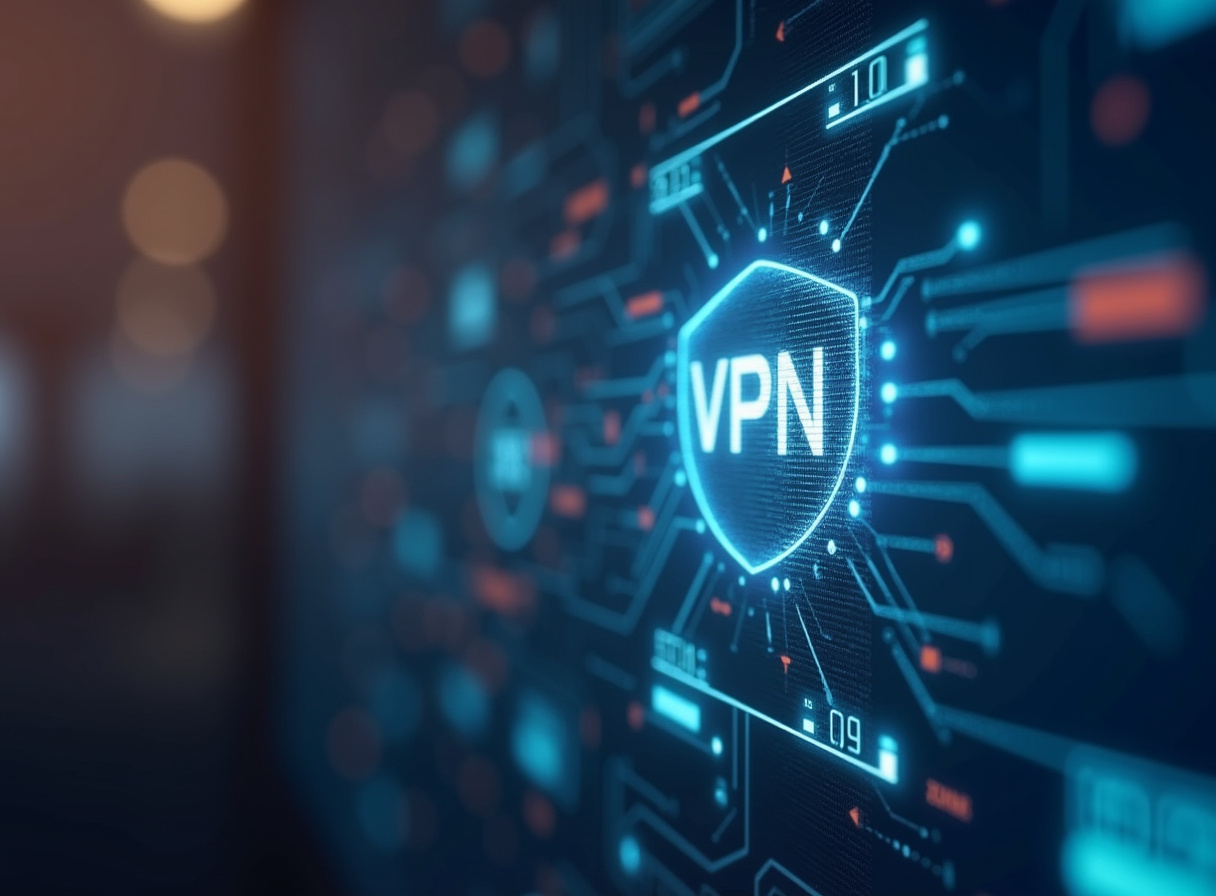
Table of Contents
software firm VPN
## VPNs for Software Firms: Protecting Development Environments with Robust Security In today's hyper-connected digital landscape, software firms face an unprecedented array of cybersecurity threats. The very lifeblood of these organizations – their intellectual property, source code, and sensitive development data – are prime targets for malicious actors ranging from nation-state adversaries to opportunistic cybercriminals. The stakes are incredibly high.
A successful breach can lead to the theft of valuable innovations, reputational damage, financial losses, and a significant competitive disadvantage. Therefore, it is paramount for software companies to prioritize robust security measures, particularly within their development environments. One of the most effective and readily deployable tools in this arsenal is a well-configured .
A Virtual Private Network (VPN) provides a secure and encrypted tunnel for data transmission, effectively shielding development activities from prying eyes. By routing all internet traffic through a VPN server, software firms can mask their internal network's IP addresses, making it significantly more difficult for attackers to identify and target specific systems. This obfuscation serves as a critical first line of defense against reconnaissance efforts and reduces the overall attack surface.
Furthermore, the encryption provided by the VPN ensures that even if an attacker manages to intercept data in transit, it will be rendered unreadable without the correct decryption key. This is particularly important when developers are working remotely or accessing development resources from public Wi-Fi networks, which are notoriously vulnerable to eavesdropping and man-in-the-middle attacks. Beyond merely protecting against external threats, a company can also play a crucial role in enforcing internal security policies and access controls.
By requiring all developers to connect to the development network through a VPN, firms can ensure that only authorized personnel gain access to sensitive code repositories and development infrastructure. The VPN can be integrated with existing authentication systems, such as multi-factor authentication, to further strengthen access control and minimize the risk of insider threats. Furthermore, many VPN solutions offer logging and auditing capabilities, providing valuable insights into network activity and enabling security teams to quickly detect and respond to suspicious behavior.
The use of a VPN provides a safe environment for the development teams to collaborate and share ideas, ensuring that the of the company remains secure. This security is not only about external threats, but also allows to create internal policies for access control that enables a much more secure usage of the company's data. A well designed and maintained VPN not only protects from malicious attacks, but also promotes integrity inside of the company.
In essence, a software firm VPN is not just about encrypting traffic; it is about establishing a secure and controlled environment for software development, safeguarding intellectual property, and fostering a culture of . Considering the increasing sophistication of cyber threats, it's no longer a luxury– it's a fundamental necessity for software organizations to remain competitive and protect their valuable assets. Failing to implement adequate security measures, including a robust VPN solution, can have catastrophic consequences, undermining and potentially jeopardizing the future of the company.
Keeping up with the current security trends and understanding of the different policies is an essential part to keep the sensitive information protected. The role of the VPN is key to ensure that the privacy and overall integrity remains uncompromised.
innovation
Choosing the right VPN solution for a software firm involves careful consideration of several key factors. First and foremost, performance is paramount. Developers need a reliable and fast connection to access code repositories, build servers, and other development resources.
A VPN that introduces significant latency or bandwidth limitations can severely impact productivity and frustrate developers. Therefore, it's essential to opt for a VPN service with a robust network infrastructure and servers located strategically around the world to minimize latency. Consider the geographic distribution of your development team and choose a provider with servers in proximity to their locations.
This will help ensure optimal connection speeds and minimize disruptions to their workflow. Furthermore, evaluate the VPN provider's network capacity and peering arrangements to ensure they can handle the volume of traffic generated by your development team. Adequate bandwidth is crucial for tasks such as code compilation, testing, and deployment.
Secondly, security features are equally vital. The VPN should support strong encryption protocols, such as AES-256, and offer advanced security features like a kill switch, which automatically terminates the internet connection if the VPN connection drops, preventing data leakage. The VPN provider should also have a strict no-logs policy, ensuring that user activity is not tracked or stored.
This is crucial for maintaining privacy and protecting sensitive development data. Look for providers that have undergone independent security audits and are transparent about their data retention policies. A commitment to user privacy is a hallmark of a reputable VPN provider.
Beyond encryption and a no-logs policy, additional security features like DNS leak protection and IP leak protection are essential to ensure that your online activity remains private and secure. These features prevent your DNS requests and IP address from being exposed to third parties, even when using the VPN. Thirdly, ease of use and manageability are essential, especially for large software teams.
The VPN client software should be intuitive and easy to install and configure on various operating systems and devices. Consider a VPN solution that offers a centralized management console, allowing administrators to easily deploy and manage the VPN client across all devices used by the development team. Centralized management simplifies tasks such as updating the VPN client, configuring security policies, and monitoring VPN usage.
The VPN service should also provide centralized management tools that allow administrators to easily manage user accounts, configure security policies, and monitor network activity. Scalability is another important consideration, particularly for rapidly growing software firms. The VPN solution should be able to accommodate a large number of users and devices without compromising performance or security.
Consider a VPN solution that offers flexible pricing plans and can easily scale to meet your growing needs. Integration with existing infrastructure, such as Active Directory or LDAP, can also simplify user management and streamline access control. Furthermore, the VPN solution should be compatible with various development tools and platforms, ensuring that developers can seamlessly integrate it into their existing workflows.
Consider VPN solutions that offer integrations with popular development tools such as Git, Jenkins, and Docker. This will allow developers to seamlessly incorporate the VPN into their existing development processes. Cost is, of course, always a factor.
However, it's crucial to strike a balance between cost and functionality. Investing in a cheap but unreliable VPN solution can ultimately be more costly in the long run if it compromises security or impacts productivity. It's advisable to carefully evaluate different VPN options, compare their features and pricing, and choose a solution that best meets the specific needs and budget of the software firm.
Finally, the reputation and track record of the VPN provider should be carefully considered. It's essential to choose a reputable provider with a proven history of providing reliable and secure VPN services. Look for providers that have undergone independent security audits and are transparent about their security practices.
By carefully considering these factors, software firms can choose a VPN solution that provides the necessary security, performance, and manageability to protect their development environments and foster . Ensuring by picking the right provider is a key part of protecting and having a solid .
software firm VPN
Implementing a effectively requires a well-defined strategy and a clear understanding of the organization's specific security requirements. The first step is to conduct a thorough risk assessment to identify potential vulnerabilities in the development environment and determine the types of threats that the VPN needs to address. This assessment should consider factors such as the sensitivity of the data being handled, the location of developers, and the types of devices being used.
Analyze your existing security posture and identify any gaps that a VPN can help address. For instance, if your developers frequently work remotely from unsecured public Wi-Fi networks, a VPN can provide a much-needed layer of protection. If you have developers in regions with restrictive internet censorship, a VPN can help them bypass these restrictions and access essential development resources.
Also, consider the specific compliance requirements that your organization must adhere to, such as HIPAA or GDPR, and ensure that the VPN solution can help you meet these requirements. Based on the risk assessment, a comprehensive VPN policy should be developed that outlines the rules and guidelines for VPN usage. This policy should cover topics such as acceptable use, password management, device security, and data protection.
Clearly define what activities are permitted and prohibited while connected to the VPN. For example, specify whether developers are allowed to use the VPN for personal browsing or streaming. Emphasize the importance of strong password hygiene and multi-factor authentication to prevent unauthorized access to the VPN.
Outline the security measures that developers must take to protect their devices, such as installing antivirus software and keeping their operating systems up to date. Specify the types of data that are considered sensitive and how they should be handled while connected to the VPN. The policy should be clearly communicated to all developers and enforced consistently.
Provide regular training sessions to educate developers about the VPN policy and best practices for secure VPN usage. Use a VPN implementation to support the organization's . The next step is to configure the VPN solution to meet the organization's specific security requirements.
This includes configuring encryption protocols, setting up access controls, and enabling logging and auditing features. Choose a strong encryption protocol, such as AES-256, to protect the confidentiality of data transmitted through the VPN tunnel. Implement granular access controls to restrict access to sensitive resources based on user roles and permissions.
Enable logging and auditing to track VPN usage and identify any suspicious activity. Consider integrating the VPN with a Security Information and Event Management (SIEM) system to facilitate centralized security monitoring. It's also important to integrate the VPN with existing security infrastructure, such as firewalls and intrusion detection systems.
Configure your firewall to allow only VPN traffic and block all other incoming connections. Integrate the VPN with your intrusion detection system to detect and respond to any malicious activity that may be attempting to bypass the VPN. Once the VPN is configured, it's crucial to thoroughly test it to ensure that it is functioning correctly and providing the necessary level of security.
This testing should include penetration testing to identify any vulnerabilities in the VPN configuration. Conduct regular security audits to assess the effectiveness of the VPN and identify any areas for improvement. Furthermore, the VPN solution should be continuously monitored to detect and respond to any security incidents.
Implement a system for monitoring VPN usage and alerting security personnel to any suspicious activity. Establish a clear incident response plan to address any security breaches that may occur. Regularly review and update the VPN configuration and policies to adapt to evolving security threats.
By following these steps, software firms can effectively implement a VPN solution that protects their , preserves their ability to create , and secures their development environments. Making the VPN adoption part of the standard practices and security protocols of the company, ensures that all of the benefits of this technology are fully embraced and that the company's information is safer. A well implemented enterprise firms can protect their data from a wide range of threats.
software firm VPN
Beyond the initial setup and configuration, ongoing maintenance and monitoring are crucial to ensuring the long-term effectiveness of a . This involves several key activities, including regular software updates, security audits, performance monitoring, and user training. VPN software, like any other software, is subject to vulnerabilities that can be exploited by attackers.
Therefore, it's essential to keep the VPN client and server software up-to-date with the latest security patches. Establish a process for regularly checking for and applying software updates. Automate the update process where possible to reduce the burden on IT staff.
Implement a robust testing process to ensure that updates do not introduce any new issues or conflicts with existing systems. Conduct regular security audits to assess the effectiveness of the VPN configuration and identify any potential vulnerabilities. Engage independent security experts to perform penetration testing and vulnerability assessments.
Review the VPN logs and security reports to identify any suspicious activity or potential security breaches. Address any identified vulnerabilities promptly and implement appropriate remediation measures. Performance monitoring is essential to ensure that the VPN is not impacting developer productivity.
Monitor VPN connection speeds and latency to identify any performance bottlenecks. Optimize VPN server locations and configurations to improve performance. Implement Quality of Service (QoS) policies to prioritize VPN traffic over other types of network traffic.
Conduct regular performance tests to ensure that the VPN is meeting the required performance standards. User training is crucial to ensure that developers are using the VPN correctly and following security best practices. Provide regular training sessions to educate developers about the VPN policy and how to use the VPN client.
Emphasize the importance of strong passwords and multi-factor authentication. Teach developers how to recognize and avoid phishing attacks. Educate developers about the risks of using public Wi-Fi networks and the importance of connecting to the VPN whenever they are working remotely.
Furthermore, consider the evolving threat landscape and adapt your VPN configuration and policies accordingly. Stay informed about the latest cybersecurity threats and vulnerabilities. Adjust your VPN configuration to protect against new threats.
Update your VPN policy to reflect changes in the threat landscape. Regularly review and update your VPN configuration to ensure that it remains effective. It is very important that the company constantly monitors and protects .
The VPN can also be used to support different scenarios for and , for example a test environment where developers can perform security tests and penetration tests to increase the security skill of the company. Integrating the VPN with other security tools such as multi-factor authentication, intrusion detection, and SIEM systems can considerably increase the overall security of the company's environment. Multi-factor authentication adds an important layer of authentication that reduces the probabilities of unauthorized access.
An intrusion detection system analyzes network traffic to discover anomalies that could indicate a security breach, and the SIEM tools centralize data from the organization's security system in order to perform analytics so the company's security team can discover patterns and anomalies. Another practice that could prove beneficiary, is periodically changing the VPN server's location, since some locations might have become compromised or subject to more surveillance. Rotating the VPN server location can further enhance security and privacy.
Implementing all these strategies for securing the VPN and its maintenance, proves key for creating solid and well designed protection that helps firms to keep their information assets safe.
software firm VPN
In conclusion, a well-implemented and diligently maintained is an indispensable component of a robust security strategy for modern software development organizations. It provides a secure tunnel for data transmission, protects sensitive , enforces access controls, and fosters a culture of . However, the effectiveness of a VPN depends not only on the technology itself but also on the policies, procedures, and practices that surround its implementation.
Choosing the right VPN solution is a critical first step, requiring careful consideration of factors such as performance, security features, ease of use, scalability, and cost. Software firms must carefully evaluate their specific security needs and choose a VPN provider with a proven track record of providing reliable and secure services. Implementing a VPN effectively requires a well-defined strategy and a clear understanding of the organization's security requirements.
This includes conducting a thorough risk assessment, developing a comprehensive VPN policy, configuring the VPN solution to meet specific security requirements, and integrating the VPN with existing security infrastructure. Ongoing maintenance and monitoring are crucial to ensuring the long-term effectiveness of a VPN. This involves regular software updates, security audits, performance monitoring, and user training.
Software firms must stay informed about the latest cybersecurity threats and vulnerabilities and adapt their VPN configuration and policies accordingly. The role of a VPN extends beyond simple data encryption; it plays a critical role in protecting a software firm's most valuable assets. This protection is not merely about thwarting external attacks but also about fostering internal security and establishing a secure environment where can flourish.
The VPN also facilitates secure remote access by encrypting the data and creating a secure bridge for the remote worker to connect safely and preventing any interception or theft. To fully maximize the potential of a VPN and prevent its protections from being compromised, every member of the development team has to be instructed to use security best practices and policies. This practice includes the implementation of strong passwords combined with the use of multi-factor authentication, that ensures that no unauthorized personal can gain access.
Educating the development team about the danger and ways to effectively use the VPN should be a recurring practice. This training programs ensures that all of the personnel is aligned with the best security configurations. By promoting VPN usage and making it widely understood ensures the security measures are complied with.
Ultimately, this proactive and security-centric approach empowers the software firm to secure its development environment while maintaining a creative, collaborative, and innovative workplace. In conclusion, implementing a firms, ensures a powerful defense mechanism to secure its digital assets, protect intellectual properties and promote a culture of security. By selecting a VPN that fits the company's needs and adopting a consistent commitment to best practices, software firms can harness the full potential of this technology to secure its assets and foster innovation in an increasingly connected global digital environment.
Stay Updated
Get the latest VPN news, tips, and exclusive deals to your inbox.
